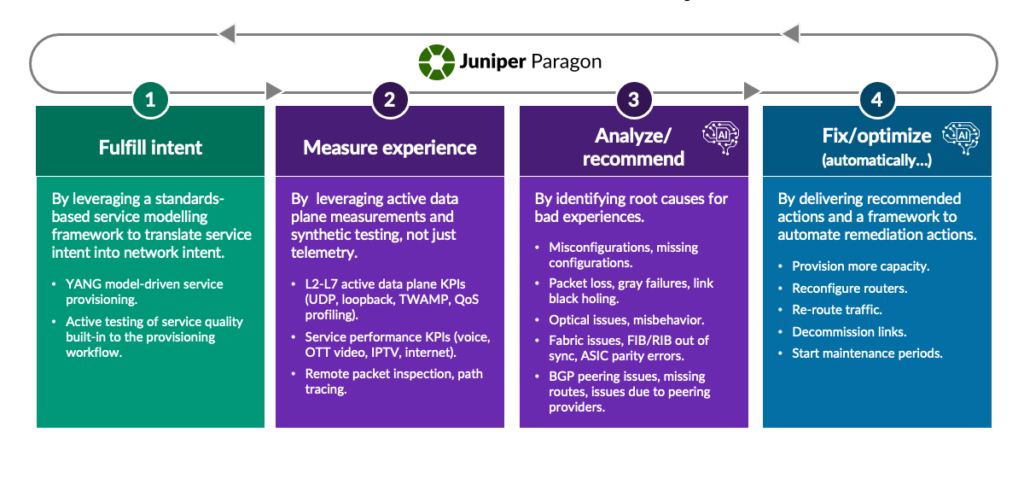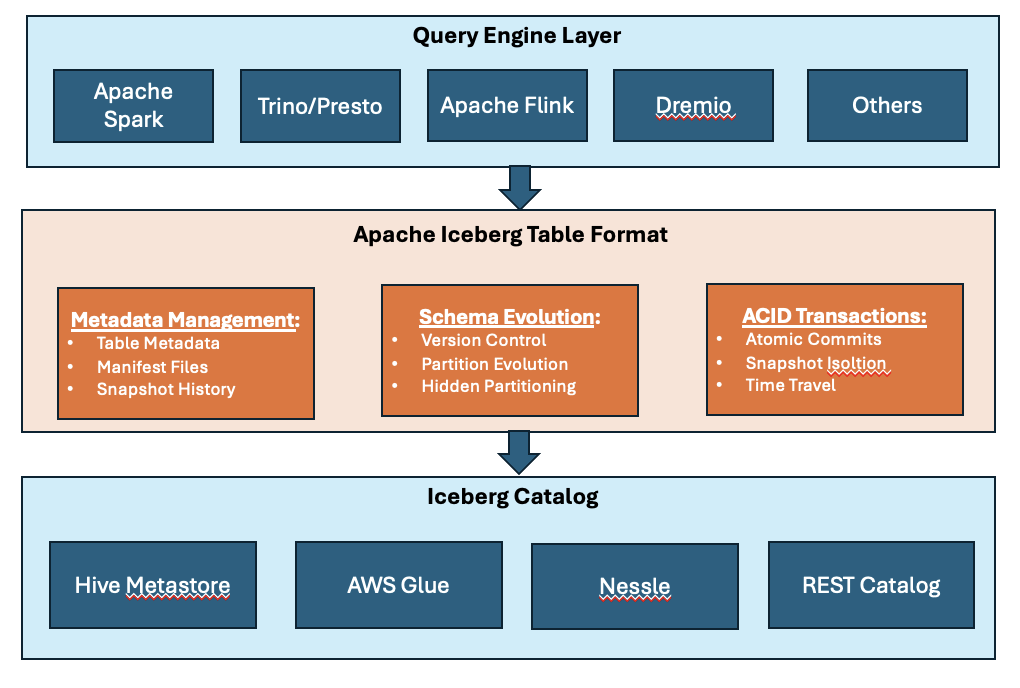Intent-Based Networking (IBN) is an advanced approach to network management and operation that uses high-level business goals and policies to automate and manage the network. Unlike traditional network management methods that require manual configurations and constant monitoring, IBN focuses on the desired outcomes or “intent” and uses AI, machine learning, and automation to achieve those outcomes.
Here are the key features and benefits of IBN:
Key Features:
- Business Intent Translation: IBN systems translate high-level business objectives into network policies. These intents could include ensuring security compliance, optimizing performance, or prioritizing certain types of traffic.
- Automated Configuration: Once the intent is defined, the IBN system automatically configures the network devices to achieve the desired state. This includes setting up routing, switching, security policies, and other network parameters.
- Continuous Monitoring and Adjustment: IBN continuously monitors the network to ensure it is meeting the defined intents. It can detect deviations from the expected behavior and automatically adjust configurations to correct them.
- Real-Time Analysis and Feedback: IBN systems provide real-time analysis and feedback on the network’s performance, security, and compliance with the defined intents. This allows for proactive management and quick resolution of issues.
- Machine Learning and AI: IBN leverages AI and machine learning to analyze vast amounts of network data, predict potential issues, and optimize network performance based on learned patterns and behaviors.
Benefits:
- Simplified Network Management: By abstracting the complexities of network configuration and focusing on high-level intents, IBN simplifies network management and reduces the need for manual intervention.
- Improved Agility: IBN enables faster deployment of network changes in response to business needs. This agility helps organizations quickly adapt to changing market conditions and technological advancements.
- Enhanced Security and Compliance: Automated enforcement of security policies and continuous monitoring ensure that the network remains compliant with regulatory requirements and organizational security standards.
- Operational Efficiency: Automation and AI-driven management reduce operational costs and the likelihood of human errors, leading to more efficient network operations.
- Proactive Issue Resolution: IBN’s real-time monitoring and predictive analytics enable proactive identification and resolution of network issues before they impact business operations.
Use Cases:
- Data Centers: Automating network configurations and policies in data centers to ensure optimal performance and resource utilization.
- Enterprise Networks: Managing complex enterprise networks with diverse requirements and ensuring consistent application of policies across all network segments.
- Cloud Networking: Facilitating seamless integration and management of hybrid cloud environments by automating network configurations and ensuring compliance with cloud policies.
Intent-based networking represents a shift from traditional, manual network management to an automated, policy-driven approach that leverages advanced technologies to achieve business goals efficiently and effectively.
IBN Technology Providers
Several networking companies offer products and solutions for intent-based networking. Here are some of the leading companies in this space:
- Cisco:
- Cisco DNA Center: Cisco’s Digital Network Architecture (DNA) Center is a comprehensive intent-based networking solution that automates network provisioning and management. It uses AI and machine learning to provide insights, automation, and assurance for network operations.
- Juniper Networks:
- Juniper Apstra: Juniper Networks acquired Apstra, a company known for its intent-based networking software. Juniper Apstra provides an intent-based networking platform that automates the design, deployment, and operation of data center networks.
- Arista Networks:
- Arista CloudVision: CloudVision is Arista’s network-wide approach for workload orchestration and workflow automation. It enables intent-based networking by providing a centralized platform for managing and automating network operations.
- Hewlett Packard Enterprise (HPE):
- HPE Aruba NetEdit: Part of the Aruba Central platform, NetEdit facilitates intent-based networking by automating network configurations and ensuring compliance with business policies.
- Extreme Networks:
- Extreme Management Center: Extreme Networks offers solutions that include intent-based networking capabilities, allowing for automated network management and policy enforcement across the network.
- Huawei:
- Huawei CloudCampus Solution: Huawei provides intent-driven network solutions through its CloudCampus, which automates network operations and enhances network performance and security.
- Nuage Networks (a Nokia venture):
- Nuage Networks VSP: The Virtualized Services Platform (VSP) from Nuage Networks supports intent-based networking by enabling policy-driven network automation and orchestration.





